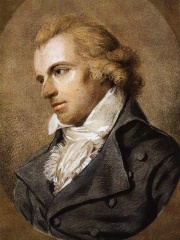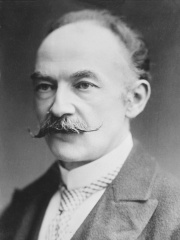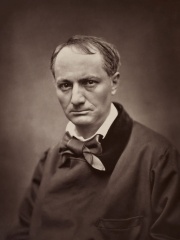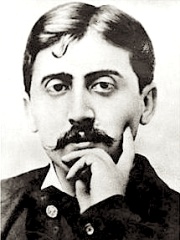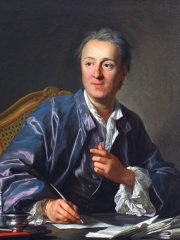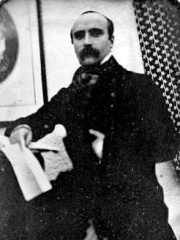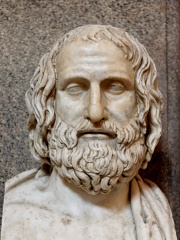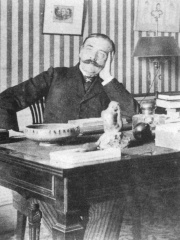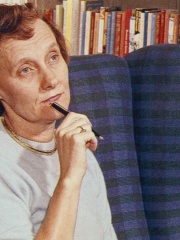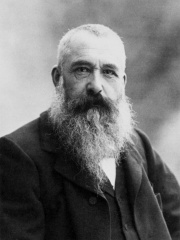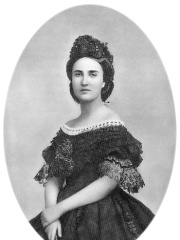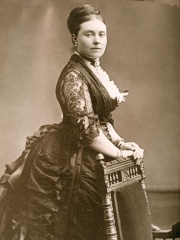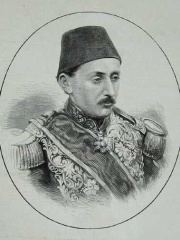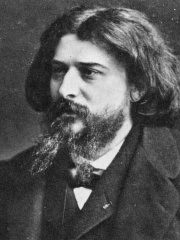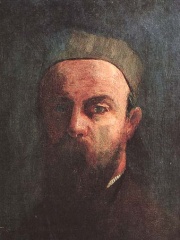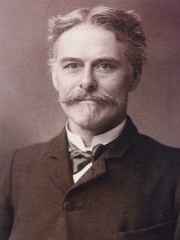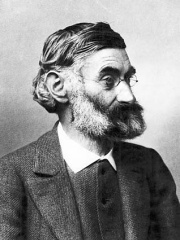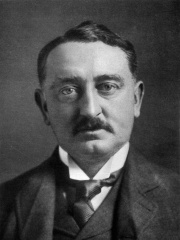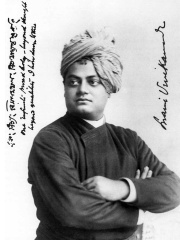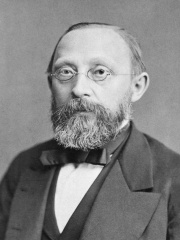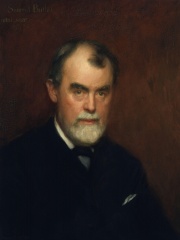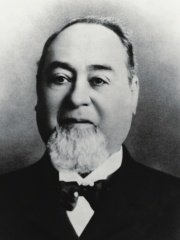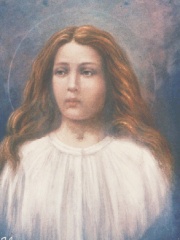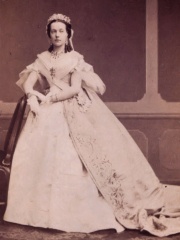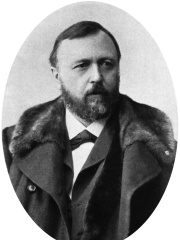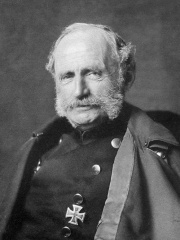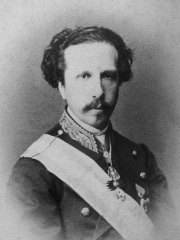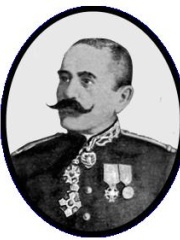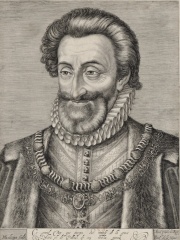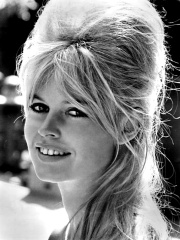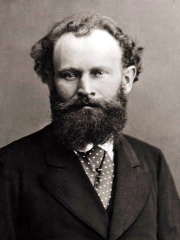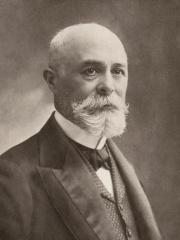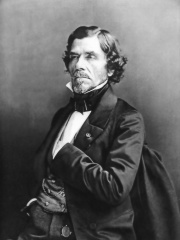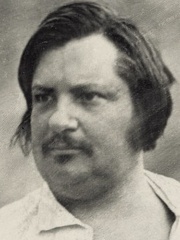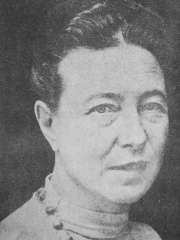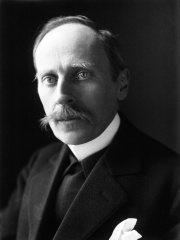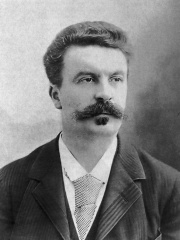WRITER
Émile Zola
1840 - 1902
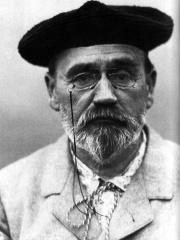
 Émile Zola
Émile Zola
Émile Édouard Charles Antoine Zola (, also US: ; French: [emil zɔla]; 2 April 1840 – 29 September 1902) was a French novelist, journalist, playwright, the best-known practitioner of the literary school of naturalism, and an important contributor to the development of theatrical naturalism. He was a major figure in the political liberalization of France and in the exoneration of the falsely accused and convicted army officer Alfred Dreyfus, which is encapsulated in his renowned newspaper opinion headlined J'Accuse...! Zola was nominated for the first and second Nobel Prizes in Literature in 1901 and 1902. Read more on Wikipedia
His biography is available in 114 different languages on Wikipedia (up from 113 in 2024). Émile Zola is the 53rd most popular writer (down from 42nd in 2024), the 49th most popular biography from France (down from 37th in 2019) and the 13th most popular French Writer.
Émile Zola is most famous for his novel, "J'accuse" (I accuse) in which he accuses the French government of anti-Semitism.
Memorability Metrics
Page views of Émile Zola by language
Among WRITERS
Among writers, Émile Zola ranks 53 out of 7,302. Before him are Friedrich Schiller, Aristophanes, Thomas Hardy, Charles Baudelaire, Marcel Proust, and Denis Diderot. After him are Gustave Flaubert, Euripides, Li Bai, Octave Mirbeau, Astrid Lindgren, and Oscar Wilde.
Most Popular Writers in Wikipedia
Go to all RankingsFriedrich Schiller
1759 - 1805
HPI: 84.57
Rank: 47
Aristophanes
448 BC - 386 BC
HPI: 84.47
Rank: 48
Thomas Hardy
1840 - 1928
HPI: 84.42
Rank: 49
Charles Baudelaire
1821 - 1867
HPI: 84.42
Rank: 50
Marcel Proust
1871 - 1922
HPI: 84.39
Rank: 51
Denis Diderot
1713 - 1784
HPI: 84.31
Rank: 52
Émile Zola
1840 - 1902
HPI: 84.25
Rank: 53
Gustave Flaubert
1821 - 1880
HPI: 84.13
Rank: 54
Euripides
480 BC - 406 BC
HPI: 84.12
Rank: 55
Li Bai
701 - 762
HPI: 84.11
Rank: 56
Octave Mirbeau
1848 - 1917
HPI: 84.08
Rank: 57
Astrid Lindgren
1907 - 2002
HPI: 83.96
Rank: 58
Oscar Wilde
1854 - 1900
HPI: 83.95
Rank: 59
Contemporaries
Among people born in 1840, Émile Zola ranks 4. Before him are Pyotr Ilyich Tchaikovsky, Claude Monet, and Thomas Hardy. After him are Auguste Rodin, Carlota of Mexico, Victoria, Princess Royal, Murad V, Alphonse Daudet, Odilon Redon, Edward Drinker Cope, and Ernst Abbe. Among people deceased in 1902, Émile Zola ranks 1. After him are Cecil Rhodes, Swami Vivekananda, Rudolf Virchow, Samuel Butler, Levi Strauss, Maria Goretti, Marie Henriette of Austria, Richard von Krafft-Ebing, Albert of Saxony, Francis, Duke of Cádiz, and Ion Ivanovici.
Others Born in 1840
Go to all RankingsPyotr Ilyich Tchaikovsky
COMPOSER
1840 - 1893
HPI: 89.39
Rank: 1
Claude Monet
PAINTER
1840 - 1926
HPI: 88.69
Rank: 2
Thomas Hardy
WRITER
1840 - 1928
HPI: 84.42
Rank: 3
Émile Zola
WRITER
1840 - 1902
HPI: 84.25
Rank: 4
Auguste Rodin
SCULPTOR
1840 - 1917
HPI: 83.07
Rank: 5
Carlota of Mexico
COMPANION
1840 - 1927
HPI: 79.22
Rank: 6
Victoria, Princess Royal
COMPANION
1840 - 1901
HPI: 77.93
Rank: 7
Murad V
POLITICIAN
1840 - 1904
HPI: 77.08
Rank: 8
Alphonse Daudet
WRITER
1840 - 1897
HPI: 75.83
Rank: 9
Odilon Redon
PAINTER
1840 - 1916
HPI: 75.03
Rank: 10
Edward Drinker Cope
ARCHAEOLOGIST
1840 - 1897
HPI: 74.30
Rank: 11
Ernst Abbe
PHYSICIST
1840 - 1905
HPI: 73.14
Rank: 12
Others Deceased in 1902
Go to all RankingsÉmile Zola
WRITER
1840 - 1902
HPI: 84.25
Rank: 1
Cecil Rhodes
BUSINESSPERSON
1853 - 1902
HPI: 82.74
Rank: 2
Swami Vivekananda
PHILOSOPHER
1863 - 1902
HPI: 82.73
Rank: 3
Rudolf Virchow
PHYSICIAN
1821 - 1902
HPI: 75.97
Rank: 4
Samuel Butler
WRITER
1835 - 1902
HPI: 73.29
Rank: 5
Levi Strauss
BUSINESSPERSON
1829 - 1902
HPI: 73.15
Rank: 6
Maria Goretti
NOBLEMAN
1890 - 1902
HPI: 70.90
Rank: 7
Marie Henriette of Austria
COMPANION
1836 - 1902
HPI: 69.97
Rank: 8
Richard von Krafft-Ebing
PHYSICIAN
1840 - 1902
HPI: 69.52
Rank: 9
Albert of Saxony
POLITICIAN
1828 - 1902
HPI: 69.18
Rank: 10
Francis, Duke of Cádiz
COMPANION
1822 - 1902
HPI: 68.32
Rank: 11
Ion Ivanovici
COMPOSER
1845 - 1902
HPI: 68.22
Rank: 12
In France
Among people born in France, Émile Zola ranks 49 out of 6,770. Before him are Charles Baudelaire (1821), Marcel Proust (1871), Henry IV of France (1553), Pierre Curie (1859), Denis Diderot (1713), and André-Marie Ampère (1775). After him are Gustave Flaubert (1821), Brigitte Bardot (1934), Édouard Manet (1832), Octave Mirbeau (1848), Henri Becquerel (1852), and Eugène Delacroix (1798).
Others born in France
Go to all RankingsCharles Baudelaire
WRITER
1821 - 1867
HPI: 84.42
Rank: 43
Marcel Proust
WRITER
1871 - 1922
HPI: 84.39
Rank: 44
Henry IV of France
POLITICIAN
1553 - 1610
HPI: 84.36
Rank: 45
Pierre Curie
PHYSICIST
1859 - 1906
HPI: 84.35
Rank: 46
Denis Diderot
WRITER
1713 - 1784
HPI: 84.31
Rank: 47
André-Marie Ampère
PHYSICIST
1775 - 1836
HPI: 84.30
Rank: 48
Émile Zola
WRITER
1840 - 1902
HPI: 84.25
Rank: 49
Gustave Flaubert
WRITER
1821 - 1880
HPI: 84.13
Rank: 50
Brigitte Bardot
ACTOR
1934 - 2025
HPI: 84.12
Rank: 51
Édouard Manet
PAINTER
1832 - 1883
HPI: 84.08
Rank: 52
Octave Mirbeau
WRITER
1848 - 1917
HPI: 84.08
Rank: 53
Henri Becquerel
PHYSICIST
1852 - 1908
HPI: 84.07
Rank: 54
Eugène Delacroix
PAINTER
1798 - 1863
HPI: 83.92
Rank: 55
Among WRITERS In France
Among writers born in France, Émile Zola ranks 13. Before him are Honoré de Balzac (1799), Antoine de Saint-Exupéry (1900), Simone de Beauvoir (1908), Charles Baudelaire (1821), Marcel Proust (1871), and Denis Diderot (1713). After him are Gustave Flaubert (1821), Octave Mirbeau (1848), Stendhal (1783), Romain Rolland (1866), Charles Perrault (1628), and Guy de Maupassant (1850).
Honoré de Balzac
1799 - 1850
HPI: 86.38
Rank: 7
Antoine de Saint-Exupéry
1900 - 1944
HPI: 86.21
Rank: 8
Simone de Beauvoir
1908 - 1986
HPI: 84.63
Rank: 9
Charles Baudelaire
1821 - 1867
HPI: 84.42
Rank: 10
Marcel Proust
1871 - 1922
HPI: 84.39
Rank: 11
Denis Diderot
1713 - 1784
HPI: 84.31
Rank: 12
Émile Zola
1840 - 1902
HPI: 84.25
Rank: 13
Gustave Flaubert
1821 - 1880
HPI: 84.13
Rank: 14
Octave Mirbeau
1848 - 1917
HPI: 84.08
Rank: 15
Stendhal
1783 - 1842
HPI: 83.83
Rank: 16
Romain Rolland
1866 - 1944
HPI: 83.15
Rank: 17
Charles Perrault
1628 - 1703
HPI: 83.14
Rank: 18
Guy de Maupassant
1850 - 1893
HPI: 81.81
Rank: 19
